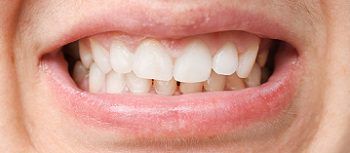Surgical Orthodontics: Causes and Treatment of uneven Jaw.
Having good dental health is a part of being healthy. However, maintaining good dental health can sometimes be challenging if you have uneven jaws or suffer from severe jaw pain.
Many causes lead to an uneven jaw. Furthermore, an uneven jaw might make breathing, talking, sleeping, or eating difficult. Physical therapy can treat some conditions and make them better. However, severe cases need surgical orthodontics for correction.

The signs of an uneven jaw frequently resemble those of other jaw problems. They may consist of:
- Head or temple ache
- Discomfort around the Jaw joint
- Tight Jaw
- Pain in the shoulder or back
- popping in the ear
Causes of uneven Jaw
Tendons, bones, and muscles help to function the Jaw. Moreover, the entire Jaw may become uneven if these structures are out of proportion. The following are some of the reasons that can cause an uneven jaw:
Fractured Jaw or trauma
Trauma can result from an accident, a fall, an assault, or a sports injury. Your Jaw can shatter, crack, or dislocate due to trauma.
Usually, a little fracture will heal on its own. However, surgery could be necessary to help the Jaw recover appropriately after a significant break. Moreover, a dislocated jaw could require surgical stabilization.
TMJ conditions
Disorders of the temporomandibular joint (TMJ) are pretty prevalent. According to the American Dental Association, arthritis or trauma causes TMJ. However, sometimes there may be no evident cause for the symptoms.
Congenital disabilities
You might have had a jaw issue since birth. For instance, you can be born with a crooked jaw. Another name for this is "faulty jaw." However, a misaligned jaw can be fixed surgically or managed with supportive care and a lifestyle change.
Teeth misalignment

Teeth misalignment can cause an uneven jaw. Your teeth can prevent your Jaw from settling into the proper position. However, this can be fixed with braces or retainers. Results could take between 6 and 18 months to show. It can take longer in more severe cases.
Surgery for uneven Jaw
Sometimes surgery is necessary to realign your Jaw. Most importantly, your uneven Jaw's underlying reason will determine the type of surgery to perform. Your doctor might decide:
Maxillary osteotomy
This upper jaw surgery is done to treat open bites or crossbites. To line up with the lower Jaw and teeth, your surgeons will align your upper Jaw and teeth.
Mandibular osteotomy
This surgery fixes problems like an overbite and a lower jaw that protrudes. To move or retract the lower Jaw, your surgeon cuts the back of your mouth.
Genioplasty
Genioplasty can correct a tiny or misaligned chin. Your surgeon will cut the chin bone in the front of the Jaw to remodel the Jaw and chin.
Jaw wiring
Wiring the jaw positions the Jaw in a particular place or provides support in the case of a fracture or break.
Conclusion
Dental equipment like braces helps to treat uneven jaws. However, more complicated situations require surgery.
Therefore, visit your doctor if you are experiencing excruciating jaw pain, whether it is ongoing or the result of an injury. Your surgeon can determine the underlying reason for your discomfort and collaborate with you to find relief.
Contact your Danville dentist, Dr. Hoss Abar, DDS, MSD at Danville Orthodontics, to know more about the treatment of uneven Jaw.
Resource:
Things You Need To Know About Surgical Orthodontics.
This media/content or any other on this website does not prescribe, recommend, or prevent any treatment or procedure. Therefore, we highly recommend that you get the advice of a qualified dentist or other medical practitioners regarding your specific dental condition.
